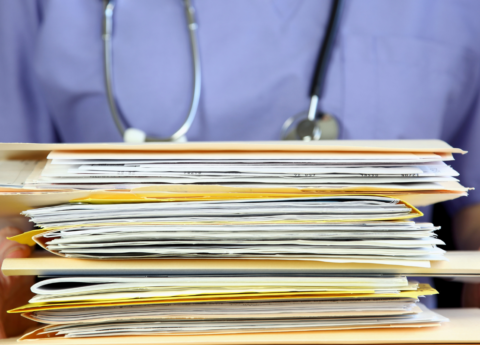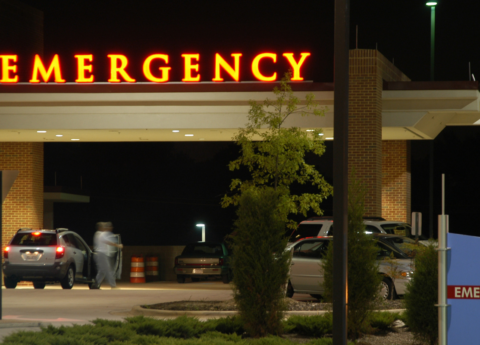The COVID-19 pandemic is illustrating why Kentuckians must be able to stay home from work when they are sick. When people don’t have access to paid sick leave, the negative economic impacts they face for simply following common sense guidelines like staying home when sick, put us all at risk.
Too few jobs provide paid sick leave, especially impacting women and people of color in low wage jobs
Too few jobs provide paid sick leave, particularly low-wage service jobs at the front line of public interaction such as early care and education workers, home health aides and restaurant workers. Nationally, just under 73% of private sector workers have access to paid sick leave at work and in the East South Central region, which includes Kentucky, it’s just 62% (compared to 91% in the Pacific region made up of California, Oregon and Washington). Rural workers are also less likely to have access to paid sick leave.
Nationally, 32 million workers, including 7 out of 10 of the lowest-paid private sector workers do not have the ability to earn paid sick leave. They are often the most at-risk of contracting and transmitting infectious diseases, including COVID-19, given the nature of their work. Positions without paid sick days include a variety of low-wage and service sector jobs that are disproportionately held by people of color, reflecting the long history of systematic bias and lack of opportunities to education and wealth-building experienced by people of color.
Additionally women are over-represented in low-wage and service jobs, putting them at an increased risk to the negative health and economic consequences of COVID-19. Women who do not have the opportunity to earn sick leave, such as food service workers and child care providers, as a result are less likely to receive preventative care like cancer screenings, physicals and pap smears in addition to their increased risk of contracting diseases like the flu or COVID-19. The need for paid sick days is exacerbated for women who also disproportionately provide caretaking for family members. While only 10% of fathers report being the sole caretaker responsible for taking off work to care for a sick child, 40% of mothers report being in this situation. And women also constitute the majority of caretakers of older and aging parents.
People without paid sick leave face difficult, dangerous decisions
Without access to paid sick leave, Kentuckians are faced with difficult decisions – such as whether to go to work sick, send their children to school or day care sick, or face losing valuable income needed for basic necessities such as rent, food or medical bills. Many also face losing their job entirely for missing work due to illness. For the average worker who does not have access to paid sick days:
- Taking off even a half day from work due to illness is the equivalent of the household’s monthly spending on fruits and vegetables. Lost wages from taking off three days would be equal to their entire grocery budget for the month.
- Two days of unpaid sick time are roughly the equivalent of a month’s worth of gas, making it difficult to get to work once healthy.
- Three days of unpaid sick time translates to a household’s monthly utility budget and could prevent a worker from being able to pay for electricity and heat.
- In the case of longer illnesses, for example the 14 day self-isolation period recommended after exposure to COVID-19, if a worker is home ill (or caring for their child or older parent) for just half that much time, the unpaid sick time would be the equivalent of a monthly rent or mortgage payment.
Paid sick leave is good for public health and for the economy
This difficult set of choices many workers face due to a lack of sick leave is never good for our communities’ health, but is especially dangerous in the current situation.
Estimates show at least 68% of employees without paid sick leave have gone to work while sick and about half of them would have stayed home if they could have without losing their paycheck. One study found that close to two-thirds of restaurant workers (servers and cooks) have gone to work while sick. A study of restaurant workers in Miami found that 92% of restaurant workers in Miami went to work sick because they could not afford to take a day off or feared being fired or otherwise penalized.
Workers without paid sick leave are also 3 times less likely to receive medical care and 1.6 times less likely to access medical care for their family members, compared to their counterparts with access to paid sick leave. On the other hand, when workers have access to paid leave, they are more likely to receive vaccinations like the flu vaccine, and to visit a health care professional when they are sick. They are less likely to delay medical care and to end up in the emergency room, which can be very costly to both sick individuals and the health care system.
In addition to reducing the spread of diseases like COVID-19, research shows that paid sick leave has economic benefits that include income stability for workers and their families, increased productivity at work, reduced turnover and health care cost savings for individuals, families, employers and the state. And public policies providing paid sick leave create a level playing field for employers, supporting a virtuous cycle of greater health, economic security and productivity.
Federal and state policy proposals should be advanced quickly
The federal COVID-19 bill, HR 6201 – which would provide emergency benefits to workers – initially passed the U.S. House over the weekend and was revised yesterday but has not yet been taken up by the Senate. The latest version would require that some workers receive two weeks of fully paid sick leave (up to $511 a day) to self-quarantine, seek a diagnosis or preventive care, or receive treatment for COVID-19. Workers would also be eligible for paid time off at two-thirds of their regular pay (up to $200 per day) to care for a family member or to care for a child whose school has closed, or if their child care provider is unavailable due to COVID-19.
In addition, eligible workers would be eligible for up to three months of job-protected leave to take care of their children in the event of a school closure or if their child care provider is unavailable due to COVID-19, only if the parent is unable to work or telecommute. This 12 weeks of job-protected leave would include two weeks of unpaid leave, followed by 10 weeks of paid leave at two-thirds of their usual pay for those who are eligible. The initial version of the bill did not include the telecommuting restriction for longer term paid leave, and more broadly allowed for individuals with personal health or other family caretaking needs that were stripped out in the new version.
Although the bill does not apply to businesses with 500 or more employees, workers at these firms are more likely to have access to paid leave than those working for smaller businesses. Some companies with fewer than 50 employees may qualify for an exemption.
Steps towards a more permanent solution are needed in Kentucky at the state level. With Senator McGarvey’s Senate Bill 282 and Representative Cantrell’s House Bill 123, Kentucky would join the 12 other states and Washington D.C. that already have earned paid sick leave legislation. Currently, not only does Kentucky lack a law requiring employers to provide paid sick leave, but the state passed legislation in 2017 that prevents localities from enacting their own paid sick leave policies as more than 20 local governments across the country have done.
Jobs without basic protections simply can’t sustain families, communities or the economy and it’s urgent that we do better, starting now.




